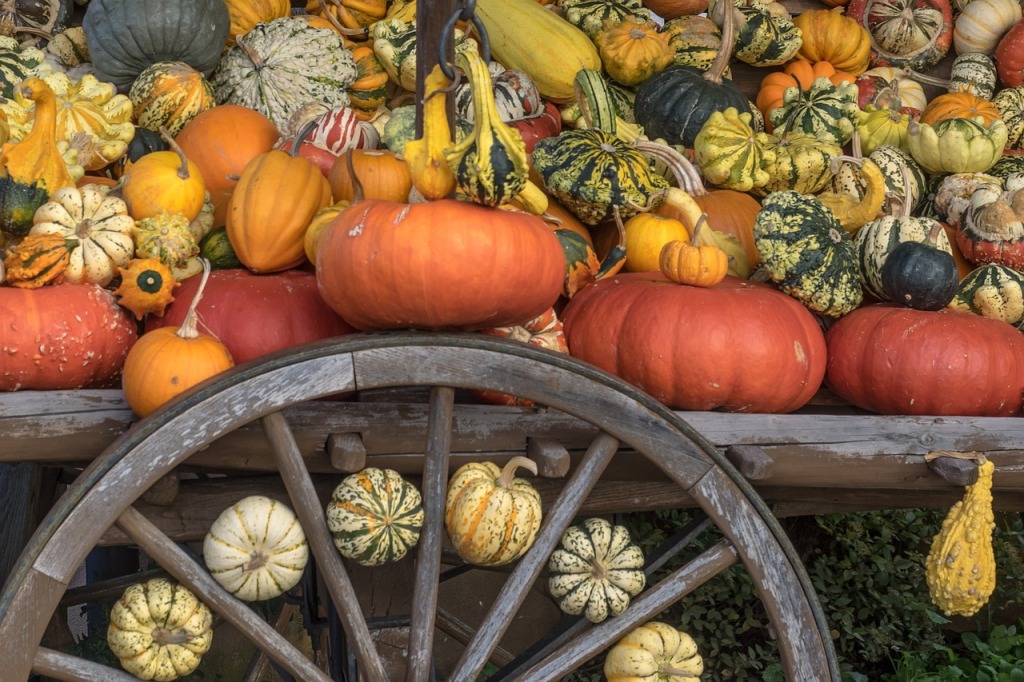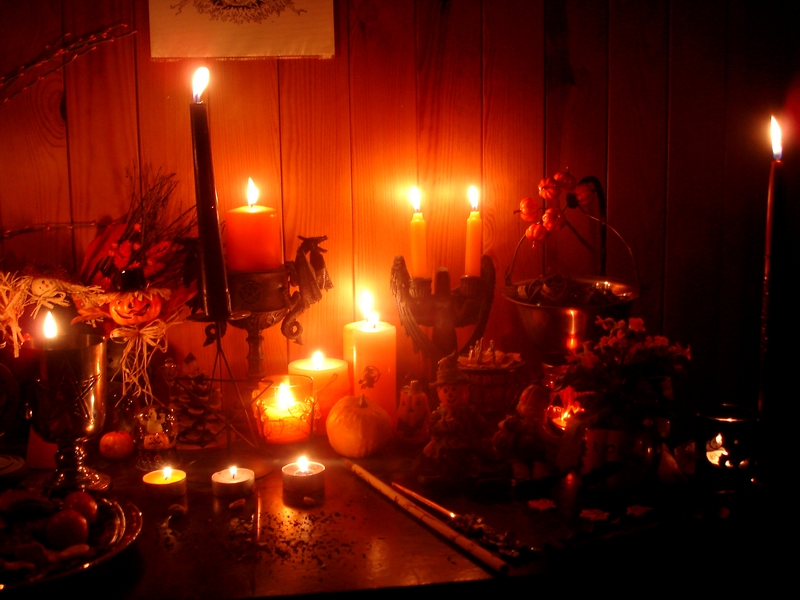Pagan Voices is a spotlight on recent quotations from figures within the Pagan community. These voices may appear in the burgeoning Pagan media or a mainstream outlet, but all showcase our wisdom, thought processes, and evolution in the public eye. Is there a Pagan voice or artist you’d like to see highlighted? Contact us with a link to the story, post, audio, or image.

As the wheel of the year turns ever closer to the observance of Samhain for the northern hemisphere, “witches,” and Witches, appear prominently in the mainstream media and dominate mundane culture. Every day there are multiple stories that focus on everything from charity events that utilize the symbols of the season to attract participants, to spooky happenings like ghost tours, to those that feature actual practitioners of Witchcraft.
Below are some of the writings that caught the attention of TWH. Some speak to the season before us, and some to what it means to be a Witch.

Public Domain [Pixbay]
“Across the centuries and cultures, those who have been labeled as “witch,” have been vilified as deceivers. The Christian era sought only to eliminate those who practiced witchcraft because they could not be controlled. Witch has become synonymous with a willful woman who uses trickery to achieve her goals. Of course, this is only in the eye of the ones who can’t control her.
The witch, then, is seen as truthful only when her work serves the perceived good of those in power. Today, the beautiful revolution of witchcraft becoming more accepted by society has led to an evolving definition that is a bit in denial about our history. Denial is, of course, a form of deception. The problem is that reclaiming the word as one of beauty can risk negating what has always been part of witchcraft: deception. From binding others as a means of controlling their nefarious ways to slipping medicine into children’s porridge, witchcraft is often done in the shadows, where the line between truth and lie is blurred.” – Cyndi Brannen, Keeping Her Keys on Patheos.
* * *
“The fear a lot of folks have with the Craft becoming mainstream is that it will lose its Mysticism, it will lose its Sacredness, it will lose all that it means to be a Witch; to walk among the unseen and exist in Liminal Spaces.
What these folks fail to realize is that no matter how mainstream we become, there WILL ALWAYS be secrets to the Craft, there will always be things that can only be understood if they are truly experienced.” – Jaclyn Cherie, The Nephilim Rising™
* * *
“There is no essential difference between sticking pins into a wax image of an enemy and burning candles in front of a wax image of the Virgin. You may think that both these practices are gross superstition, but you can hardly think that one is real and potent and deny reality and potency to the other.” – Dion Fortune, Psychic Self-Defense
* * *
“Entering into this path truly, we make a trade. We gain something but we lose something else. If we don’t, we might still be struggling to get on the path itself, let alone attain some level of experience. We gain mystical knowledge, the ability to do things others do not know how to do to shape our lives. Power is a side effect. We truly start to gain an understanding of our responsibilities to our power and the vigilance we must have in training and transforming the consciousness. We lose the ability to forget we have this knowledge and the effect it has. Of course some do fall back into slumber, but they still dream of what they know, never quite satisfied again with their old life. We lose the ability to be “ordinary” and pretend the responsibility doesn’t exist on the path. We can’t be like everyone else for more than a moment. When we try for longer than that, we usually regret it.” – Christopher Penczak, The Tongues of Sorcerers, Temple of Witchcraft

Samhain Altar [Wilhelmine, DeviantArt]
“Beyond a common focus on death and the humor often present in the costumes, there are few if any connections between Day of the Dead and traditional Halloween trick-or-treating, which has lost nearly all connections with its early origins.
On the other hand, Day of the Dead shares many similarities with Samhain, but with differences as important. The time of year is virtually identical, both honor those who have passed on, and in the coven with whom I have most often celebrated Samhain, we celebrate a dumb feast, where favored food is offered to departed loved ones. However, the dumb supper is not treated as a happy reunion with those who passed on and, while Day of the Dead is celebrated during the day and night, we generally celebrate at night. There are other differences.
Samhain honors Death as a crucial part of the Wheel of the Year, and does not just focus on those who have passed on. As a time when Death will dominate at least symbolically until Yule, or the Winter Solstice, colors are usually dark, we make offerings to Hecate at night, where three roads come together, and I have never seen Samhain treated as a fun family event. Day of the Dead is filled with humor and Samhain is not.” – Gus diZerega, All Our Relations: Pagans and the more-than-human world on Witches & Pagans
* * *
“For in this time between the worlds, anything truly is possible. We are able to become whoever it is that we wish to be. At the Samhain fires, we can release what we do not like about ourselves, and resolve to change that in time for the rebirth of the sun. We state our intentions even as we let go, and hold true to our word. We can be whoever or whatever we want, reborn in the dawn’s light after a long night of magic and mayhem.
May these coming months both challenge you and bring you great knowledge, understanding and joy. May you meet these challenges with courage and wit, strength and intuition. And may you enjoy this time that is not a time, in a place that is not a place, in a world that is not a world.” – Joanna van der Hoeven, Down the Forest Path
* * *
We close with a poem originally published in Poetry, March 1914, and penned by Sara Teasdale that sums up the season before us, and could be an ode to Hecate.
September Midnight
Lyric night of the lingering Indian Summer,
Shadowy fields that are scentless but full of singing,
Never a bird, but the passionless chant of insects,
Ceaseless, insistent.
The grasshopper’s horn, and far-off, high in the maples,
The wheel of a locust leisurely grinding the silence
Under a moon waning and worn, broken,
Tired with summer.
Let me remember you, voices of little insects,
Weeds in the moonlight, fields that are tangled with asters,
Let me remember, soon will the winter be on us,
Snow-hushed and heavy.
Over my soul murmur your mute benediction,
While I gaze, O fields that rest after harvest,
As those who part look long in the eyes they lean to,
Lest they forget them.
The Wild Hunt is not responsible for links to external content.
To join a conversation on this post:
Visit our The Wild Hunt subreddit! Point your favorite browser to https://www.reddit.com/r/The_Wild_Hunt_News/, then click “JOIN”. Make sure to click the bell, too, to be notified of new articles posted to our subreddit.